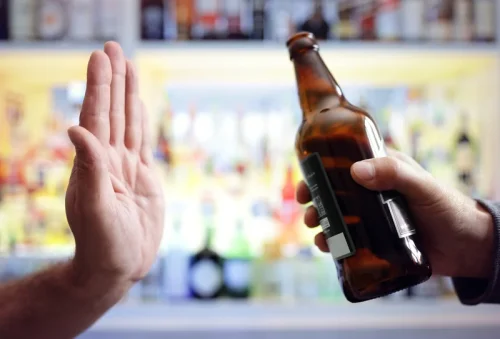
Alcohol tremors can also indicate a more severe form of alcohol withdrawal, called delirium tremens (DT’s). Delirium tremens is mainly characterized by tremors, hallucinations, disorientation, confusion, and increased heart rate/breathing rate/blood pressure. Delirium tremens is a much more serious form of alcohol tremors and usually appears a couple of days after someone ends an intense drinking binge.
From 24 to 72 Hours
Some individuals may develop a tremor similar to the one experienced by individuals with Parkinson’s disease. Alcoholism can also lead to liver disease, which, in its advanced stages, can cause a characteristic flapping or shaking of the hands known as asterixis. Alcohol-related damage to the cerebellum can result in what’s known as an intention tremor. An intention tremor is a certain type of trembling that is most noticeable when a person makes purposeful or goal-oriented movement toward an object, but the tremor may also be present at rest. His work has appeared in publications including The Guardian, Euronews, and VICE UK. Dr Plasencia, 42, provided Perry with ketamine “outside the usual course of professional practice and without a legitimate medical purpose”, according to the indictment.
How to treat hangover shakes

The shakes also called tremors can begin 6-10 hours after the last drink, and tend to be the most pronounced from the last alcohol consumption. The alcohol withdrawal timeline varies, but the worst of the symptoms typically wear off after 72 hours. People who are daily or heavy drinkers may need medical support to quit.
- Deep-breathing exercises and meditation can also be beneficial, as they promote relaxation and help in reducing anxiety, which can often exacerbate tremors.
- However, when alcohol consumption ceases or is reduced, the body still produces an excess of these excitatory neurotransmitters, leading to hyperactivity in the nervous system.
- The risk of death is also higher if you have other severe medical conditions.
Outpatient Treatment
In addition to the sober individuals, many people among the remaining two-thirds are also drinking less and experiencing fewer alcohol-related health problems after one year. If you have any of these risk factors, it’s important that you withdraw from alcohol at a medical facility that’s equipped to prevent and treat alcohol-related complications. A small percentage of people going through alcohol withdrawal have hallucinations at this point.
Alcohol Shakes & Tremors: What Do They Mean?
If you are concerned about potential alcohol withdrawal symptoms, talk to your doctor. A doctor can evaluate your overall health and alcohol abuse history to help you determine how likely it is that you’ll experience symptoms. Baclofen is a muscle relaxant that affects the central nervous system. It is generally prescribed to treat muscle spasticity https://ecosoberhouse.com/ in those suffering from multiple sclerosis, cerebral palsy, and spinal cord injuries. Although it is not a narcotic, there are still possible side effects, which could be severe. While studies have shown baclofen may be effective in reducing symptoms of alcohol withdrawal, including tremors, it is an “off-label” use of the drug at this time.
How Does Alcohol Impact the Brain and Central Nervous System?
People with a history of AUD who want to quit drinking should contact a specialist who can help them and oversee the gradual withdrawal from alcohol. Benzodiazepines are used to treat withdrawal symptoms such as tremors but must be used under close medical supervision, as they can be dangerous. Valium, Librium, Ativan, and Serax are alcohol shakes benzodiazepines that may be prescribed to treat symptoms of alcohol withdrawal. Serious side effects can occur with any benzodiazepine, as well as possible dangerous interactions with other drugs or medications. People with alcohol use disorder who suddenly stop drinking may also have a spike in an amino acid called glutamate.

There are a whole range of symptoms, including both physical and psychological issues. As important as trusted support is during detoxification and your treatment program, it is equally important after treatment. Most alcohol abusers who are having withdrawal symptoms have a shortage of several vitamins and minerals and can benefit from nutritional supplements. In particular, alcohol abuse can create a shortage of folate, thiamine, magnesium, zinc and phosphate.

Alcohol Withdrawal
- Then, when the drinks stop flowing, the body is sent into a state of alarm.
- When you suddenly stop drinking after a long period of alcohol use, your brain and nervous system can’t adjust quickly.
- There are plenty of simple ways you can also adapt this recipe to keep things fresh and interesting, and to change things up according to your personal preferences.
Complications of DTs treatments largely depend on the treatments you receive. Because there are many different medications and treatment approaches, the side effects can vary widely. Your healthcare provider is the best person to tell you more about the possible complications you might experience after your symptoms improve and confusion resolves.
Symptoms of Alcoholism
Over time, this malabsorption can lead to deficiencies in vital vitamins and minerals, such as thiamine (vitamin B1), folic acid, magnesium, and zinc. Thiamine deficiency, in particular, is of great concern for chronic alcohol consumers. A deficiency can lead to neurological issues, including peripheral neuropathy and Wernicke-Korsakoff syndrome, both of which can manifest as tremors and shakes. Also called beta-adrenergic blockers, adrenergics such as propranolol help block symptoms of detoxification, especially excessive sweating, arrhythmia, body tremors, and rapid heartbeat.